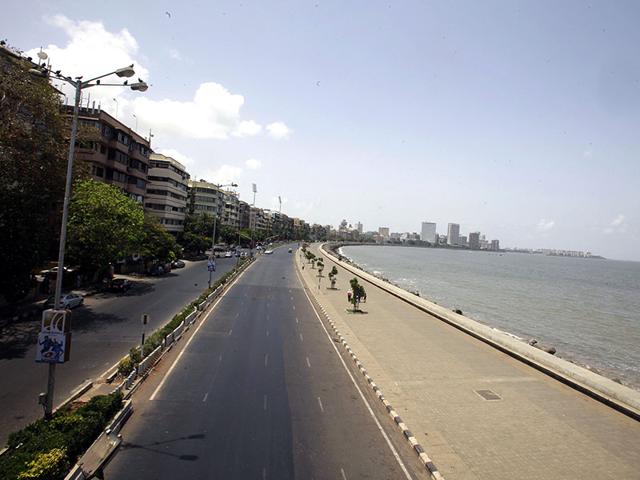Coastal road will entrench Mumbai's car-centric policy
Mumbai’s western shoreline is all set to change with the coastal road project now in the fast lane.
Mumbai’s western shoreline is all set to change with the coastal road project now in the fast lane. Chief minister Devendra Fadnavis, who has made big-ticket infrastructure projects in the city his flamboyant calling card, has announced a time frame for the coastal road notification and the process thereafter. The final notification, he said, would be issued by mid-August.

The coastal road stretching across 35.6 kilometres from Nariman Point to Kandivli along the shoreline is meant to reduce travel time between the southern tip and northern suburb, ease out the congestion of vehicles, particularly on the Western Express Highway, and create a carriageway that will put Mumbai on par with other international cities. At least, this is the stated aim.
It will also mean that the city’s shoreline will no longer be the one that generations of Mumbaiites have been used to. The last major reclamation and construction along the western shore was in the 19th century as the British turned the islands into a port city. Short and long stretches of the shore have since been the city’s commons, an inalienable part of its visual, ethnic, social and economic landscape.
There are heritage structures such as forts, beaches that are accessed by the average Mumbaiite, and of course, fishing communities whose livelihoods and homes depend on the shoreline and its sustainability. The reclamation will be at least 100 metres wide. “This will mean moving the coastline by around 100 metres at most locations,” stated the all-important joint technical committee report of June 2011. “Gentle curves” along the coastline would replace “sharp kinks” that dot it now, we are told, unmindful of the fact that these “sharp kinks” could be natural ecosystems and part of the landscape.
But the fundamental problem with the coastal road is that it reinforces and puts thousands of more crores into a car-centric transport policy for a city in which, according to the committee report, 78% citizens use public transport. This road could cost anywhere from Rs8,000 crore to Rs13,000 crore or more. Fadnavis justified it saying the Western Express Highway carries 60% of all road traffic and is congested.
His role model, Nitin Gadkari, as state cabinet minister, had offered the same excuse for constructing a profusion of flyovers between 1995 and 1999. The 50-odd flyovers did not reduce congestion. Quite the contrary, they encouraged use and purchase of private vehicles, especially cars. Mumbai is experiencing what world cities did: adding road length to move traffic faster leads to a vicious circle of more cars, more congestion, and then more roads.
This happens to be a western model, built around a car-centric transport philosophy, and meant for different socio-economic conditions. It is perhaps unsuited to Indian or Mumbai conditions. Cities that have evolved their own transport philosophies, such as Singapore or Curitiba in Brazil, have had better success as commuter cities.
The issue then is not merely the coastal road. It is the absence of a philosophy and a policy that is centred on Mumbai’s needs, one that is not car-centric. The government of the day, whether of the previous Congress-NCP or the past and present BJP-Shiv Sena, has displayed an amazing lack of imagination and innovativeness in drawing up an institutional policy for the city’s transport. What goes by way of transport policy is only a version of what private consultants have drawn up in their vision of Mumbai.
For those who dream of the city as the next big international finance centre on the globe, the coastal road is a part of the emerging reality. For those who spend hours commuting in the most arduous conditions in public transport in their home city, the coastal road will make little difference, just as the Bandra-Worli sea link changed nothing in their daily commutes. The next big thing is not the coastal road, but a non-car-centric policy.




